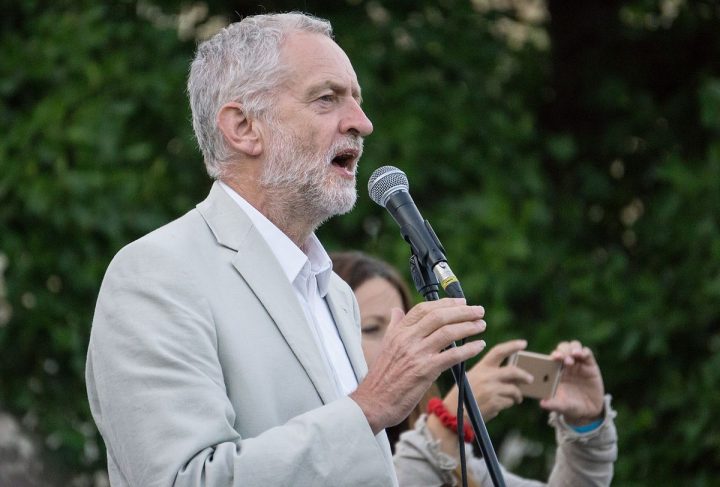Nobody should be surprised by many Labour supporters saying they are disillusioned with Jeremy Corbyn MP, the Labour leader that has led to his party becoming the largest in UK history. We hear the new trends of “post truth” and “fake news” as if they have been invented today, but they have a long history and here we have two examples. First the Media bias against Corbyn:
“Another academic study has found systemic bias against Jeremy Corbyn in the British media…. the attacks on Jeremy Corbyn have gone beyond the normal and entirely legitimate investigation of a politician’s record and appear to be aimed at purposefully destabilising, rather than soberly evaluating, Corbyn’s leadership. As a recent letter to the Guardian signed by over 100 media academics argued: ‘We do not expect journalists to give any elected leader an easy ride but Corbyn has been treated from the start as a problem to be solved rather than as a politician to be taken seriously.’… We now have three pieces of substantial empirical research that all reach similar conclusions about the comprehensive denigration of Jeremy Corbyn together with the disproportionate amount of attention paid to his critics. Earlier this month, researchers at the London School of Economics looked at over 800 articles on Corbyn in eight leading newspapers. They found that the majority of coverage overall was either ‘critical’ or overtly ‘antagonistic’ and concluded that the press had moved from a ‘watchdog’ to an ‘attack dog’ role that was aimed at delegitimising the Labour leader because of his willingness to depart from the political establishment.,, new research by Birkbeck, University of London in association with the Media Reform Coalition, that focuses on broadcast and online coverage of the current Labour leadership campaign is especially important – and worrying. Television news is not simply the most widely consumed source of news but it’s also supposed to be impartial in a way that no one expects the press to be. Similarly, the internet is often said to offer a counterweight to dominant newspaper owners and is, at least theoretically, able to offer a much more diverse range of issues and perspectives. (openDemocracy)
The policies outlined by Corbyn have tremendous public support, from the recovery of the NHS to the renationalisation of the Railway, support to non-elitist education, housing for all and reversal of the onslaught on social welfare. But the poisonous image presented by the media and some members of the Labour Party itself (e.g. Tony Blair, the man who spearheaded together with Bush Jr. the Iraqi war and the beginning of the Middle East debacle, with its millions of dead and displaced, the refugee crisis and the spread of extremist ideologies) have managed to put a doubt in the minds of ordinary people. It is a sad and dangerous state of affairs.
In an interview with the Guardian Noam Chomsky stated his support for Corbyn. “Asked what motivation he thought newspapers had to oppose Corbyn, Chomsky said the Labour leader had, like Bernie Sanders in the US, broken out of the “elite, liberal consensus” that he claimed was “pretty conservative”.
Another victim of bad press is in the news today although he actually died in 1485. His skeleton was found under a car park and he was reburied in 2015 with great pomp and anachronistic delight. The cost of the bash was £3million, but the Cathedral has made over £20million profit from visitors. Ka-ching!
According to the BBC “Shakespeare’s Richard III is based on Sir Thomas More’s unfinished History of King Richard III, which is largely untrue. It portrays Richard as a deformed and jealous villain ready to take the throne” The Tudors encouraged the bard to write it presenting him as a murderous despot in order to justify getting the throne from him, ending the Plantagenet monarchic line. So “poetic licence” has been hard at work creating a false history and a false present.
There can be no claim to “democracy” if populations are fed false and biased information. But it is also possible for people to check the information, find alternative sources and encourage initiatives such as the new website to be launched by Wikipedia founder Jimmy Wales to try to neutralise fake news. Whether it will be truly unbiased or not remains to be seen.
In the meantime, how do we prepare to vote in the UK General Elections on June 8th? Here is a “novel and radical” proposal: don’t listen to the Media, study the policies.
Furthermore, observe which ones bring contradiction to your life, and which ones produce a sense of coherence and solidarity. Nothing is more vital than this.






